
By:
- Erika Johnson
Published Date
By:
- Erika Johnson
Share This:
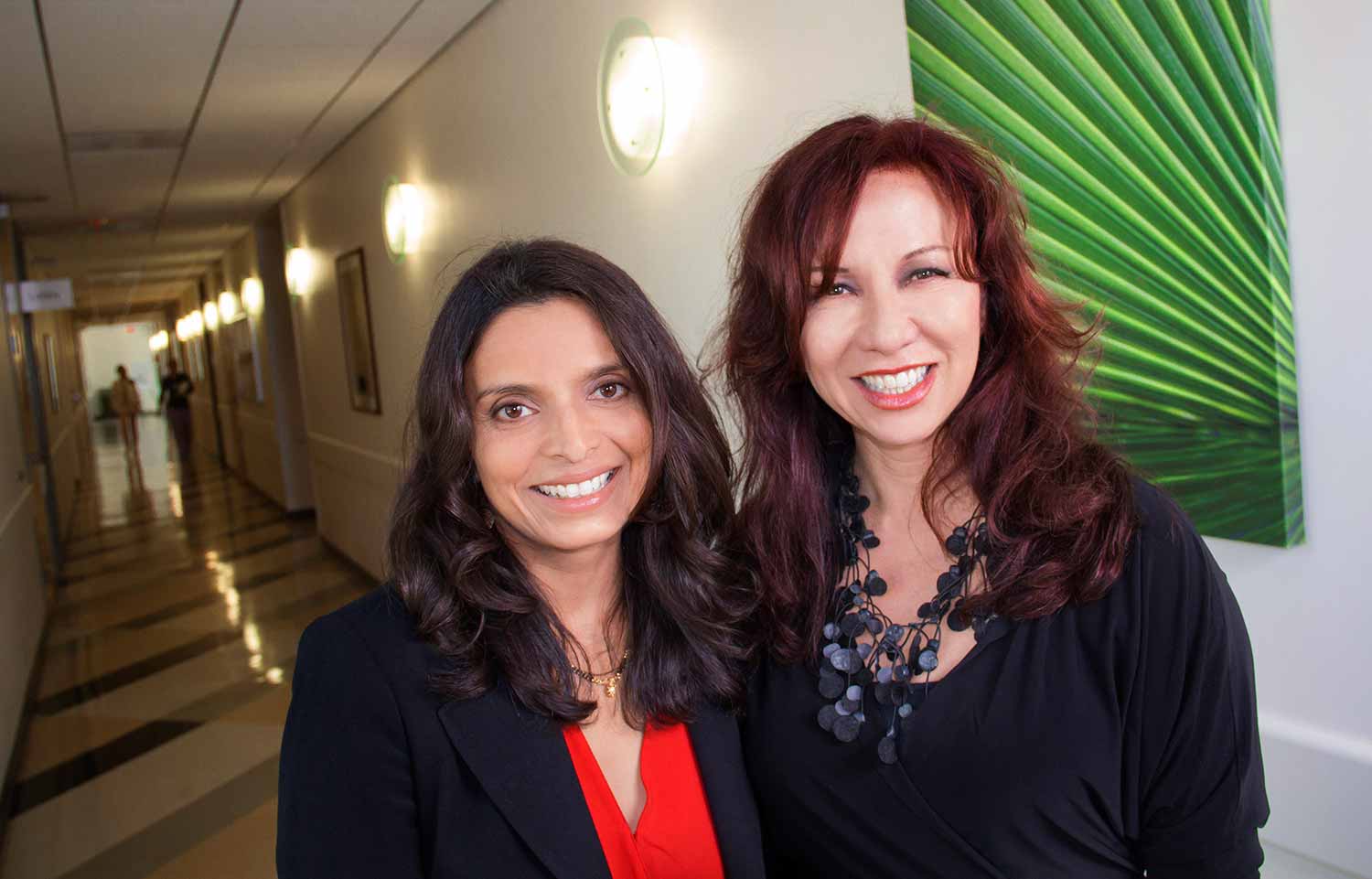
Dr. Jona Hattangadi-Gluth, assistant professor and chief of Central Nervous System Tumor Service at Moores Cancer Center, with mentor Dr. Christine Chung, professor of radiology at the UC San Diego School of Medicine. Photo by Erika Johnson/University Communications
Mentors Help New Faculty Find Their Academic Niche
Recent UC San Diego hires find experienced mentors, online programs, faculty ‘boot camp’ and other resources to ensure success
When Dr. Jona Hattangadi-Gluth began her career as a new faculty member at UC San Diego’s Moores Cancer Center, she was excited by the possibilities in front of her but concerned about meeting expectations, including her own. At this early stage, how do you prioritize patient care while fulfilling research, teaching and university service obligations? What is the best way to develop a clinical niche and academic career and still have a rewarding personal life? After being matched with a senior faculty mentor in her field, Dr. Christine Chung, she gained insight on how to develop a pathway to accomplish her research, teaching and clinical ambitions.
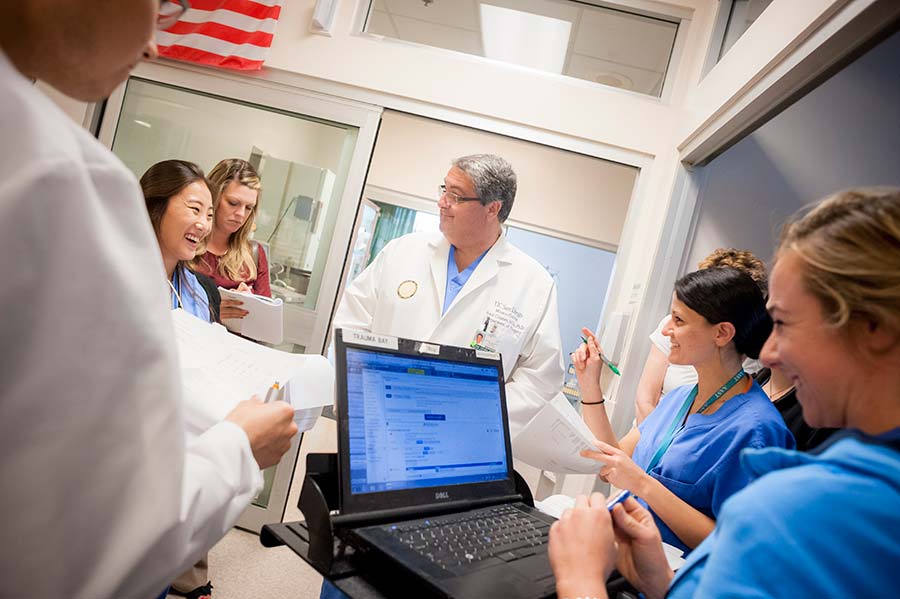
Photo by Erik Jepsen/UC San Diego Publications
“It’s challenging to go from medical resident or fellow to faculty member essentially overnight,” explained Hattangadi-Gluth, now assistant professor and chief of the Central Nervous System Tumor Service in the Department of Radiation Medicine and Applied Sciences at the Moores Cancer Center. “I wanted to get on track quickly—develop my clinical expertise and build a successful research program. The most instrumental piece of advice Christine first gave me was to breathe, take a step back and figure out what I want to do first. She has helped me distill what my overarching goal is, how to navigate getting there, and the timeline in which to achieve it.”
Whether new to academia, or just new to UC San Diego, faculty members must learn how to be effective educators; discover how to obtain grants and maintain research productivity; as well as understand institutional processes such as evaluation and advancement. Many of these facets are illuminated by mentors—senior faculty who can share their past experiences and assuage anxiety over establishing a new laboratory, chairing a committee, recruiting graduate students and other responsibilities.
“Mentoring, both in the formal and informal sense, is critical to faculty success,” said Executive Vice Chancellor for Academic Affairs Suresh Subramani. “Having both a designated mentor and a network of colleagues to turn to for information, constructive feedback or simply to talk to, is important for all faculty, especially as they are learning to navigate their many roles and responsibilities within the university.”
A partner to problem solve with
Hattangadi-Gluth took part in UC San Diego Health’s National Center of Leadership in Academic Medicine (NCLAM) program last year, one of numerous initiatives in place to help new, untenured or transitioning faculty members become acclimated to university culture, develop professional skills for academic career advancement and find a community of peers.
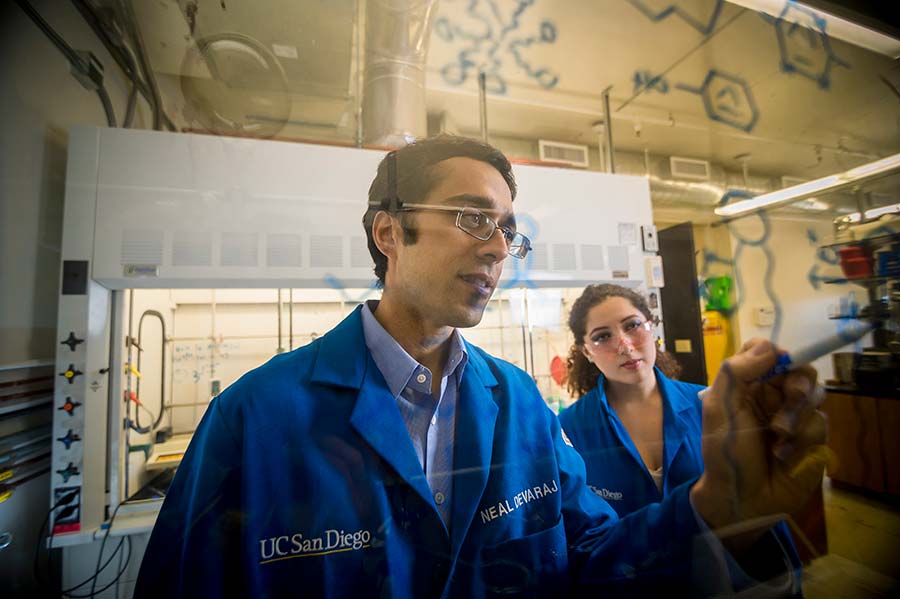
Photo by Erik Jepsen/UC San Diego Publications
As part of the NCLAM program, new faculty members at UC San Diego Health have the opportunity to enroll in a series of 16 professional development workshops over a seven-month period. During this time, they are matched with a mentor to collaborate on a project, such as a grant proposal or clinical trial. More than 300 have completed the program, forming a sense of community among administrators, senior faculty and new hires.
“This mentorship program is a means of establishing a network of colleagues, trusted relationships where you can discuss things and come to conclusions together,” said Chung, professor of radiology at UC San Diego School of Medicine. “It’s so much easier having someone who has gone down the same path, made mistakes and understands the metrics for success.”
Added Hattangadi-Gluth, “I can talk to Christine about anything, and she can give me advice that many can’t. There are unique challenges for women trying to build a successful career in academic medicine. I have a working spouse and two young kids. She understands because she’s been exactly where I am, and she has provided clarity during this pivotal time in my professional development.”
Streamlining the transition process
The Executive Vice Chancellor’s office ensures that each new general campus faculty member is paired with a faculty mentor in his/her department and provides resources to support mentoring activities. The role of the mentor is to provide informal advice on aspects of teaching, research and service, department culture and processes, and to provide general guidance and encouragement as they acclimate to the campus.
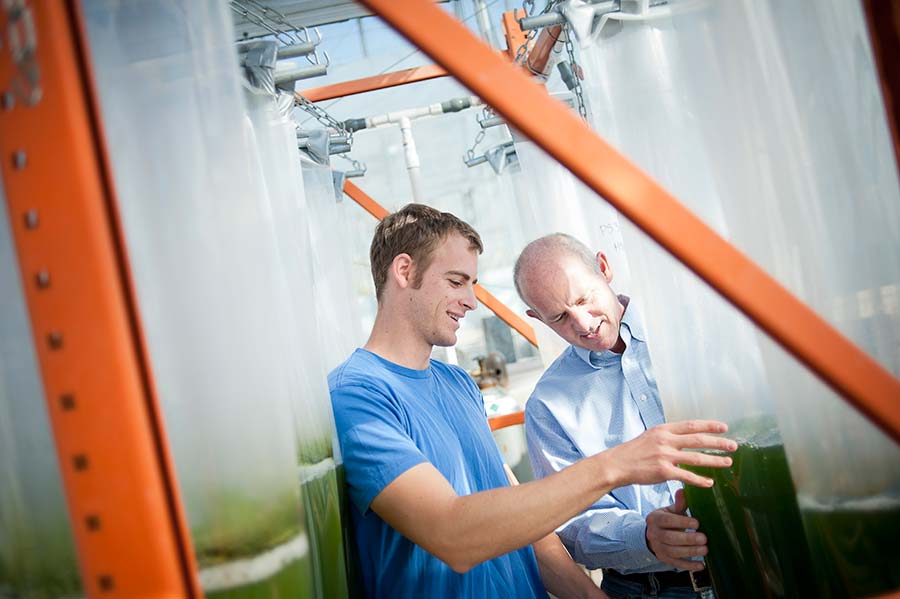
Photo by Erik Jepsen/UC San Diego Publications
“Knowledge of the management aspects of research, effective teaching techniques for undergraduates, and the appropriate amount of contributions to the institution are absolutely crucial to excel as a faculty member,” said William McGinnis, dean of the Division of Biological Sciences. “Having the right kind of mentor is an enormous boon because those mentors have successfully navigated the learning path that every assistant professor must travel, and experience is the best teacher.”
Often, one of the most important functions of a mentor is to direct new faculty to the people or resources they need to achieve their goals. UC San Diego invests in a multitude of professional development programs intended to support faculty, postdocs and graduate students at various stages in their careers, including how to be effective mentors.
For example, in fall 2015 a new course was launched, “Advising Doctoral Students,” to help faculty develop their mentorship skills. The program was created by the UC San Diego Graduate Division and is led by the Teaching + Learning Commons, a hub for faculty and graduate students to expand their skills as educators and a resource for postdoctoral scholars preparing to enter the faculty ranks. The online course—geared for new faculty but open to postdocs and graduate students—also links participants with customized campus resources such as Counseling and Psychological Services and Career Services.
Making productivity a habit
In addition to programs that match new faculty members with mentors on campus, the UC San Diego Office for Equity, Diversity and Inclusion has provided scholarships for more than 40 faculty to participate in the Faculty Success Program, led by the National Center for Faculty Development and Diversity. The intensive, 12-week virtual “boot camp” consists of small group training sessions where faculty learn strategies such as best practices for academic time management, ways to increase research productivity and how to enjoy a full life outside of work.
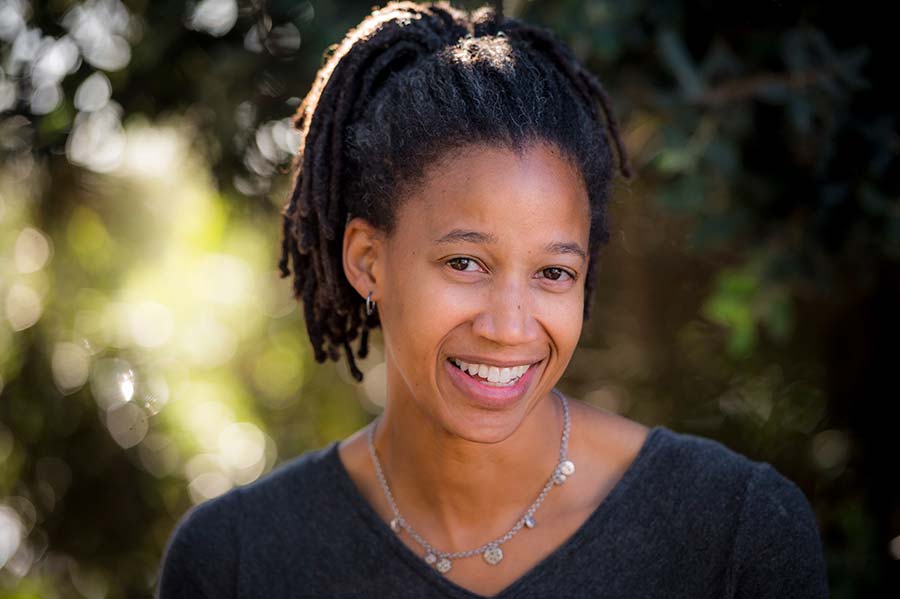
Photo by Erik Jepsen/UC San Diego Publications
According to Angela Booker, assistant professor in the Department of Communication, the Faculty Success Program offers a chance to reflect on career progress and establish goals within a community of colleagues in similar career and life stages. She took part in fall 2014, after she had transitioned to a career at UC San Diego and was helping her family adjust to a living in a new city. Soon after completing the program, she wrote two journal articles and completed editorial and authorship work on an edited volume.
“I gained a clear understanding of the systems at work in my professional and personal life that either supported or hindered success and well-being,” said Booker. “Within this framework, and using the teaching tools and guidance provided by the program, I was able to develop a robust system to support both. And more importantly, it is a system I can sustain as well as diagnose and repair if things get out of balance.”
Share This:
You May Also Like
Stay in the Know
Keep up with all the latest from UC San Diego. Subscribe to the newsletter today.


